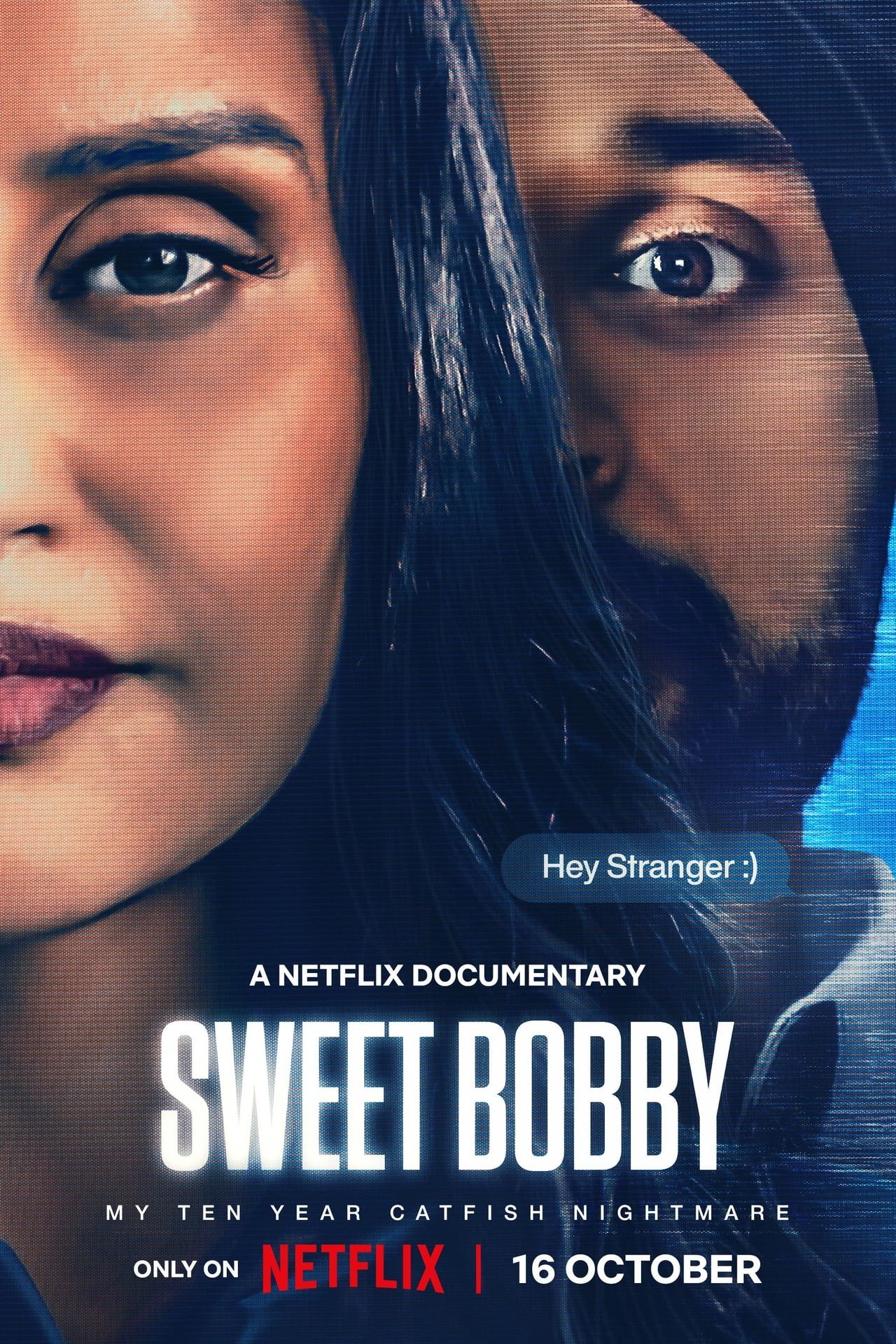Simran Bhogal: Unraveling A Digital Enigma And Online Footprints
In an age where virtually every aspect of our lives leaves a digital trace, the concept of someone being "scrubbed from the internet" feels almost anachronistic, yet it's precisely the intriguing mystery surrounding the name Simran Bhogal. While "Simran Bhogal" itself is a common name, often associated with the middle name 'Kaur' within the British Kenyan Punjabi community, the specific individual who has become the subject of online discourse presents a fascinating case study in digital elusiveness. This article delves into the fragmented narrative available about Simran Bhogal, piecing together the whispers and clues to understand the complexities of online identity, privacy, and the challenges of verifying information in a world awash with data.
Our exploration aims to shed light on why certain individuals become digital phantoms, and what lessons can be learned about online safety, ethical content consumption, and the critical assessment of information. From alleged professional affiliations to deeply personal relationship dynamics and controversial online content, the story of Simran Bhogal serves as a compelling reminder of the intricate and often contradictory nature of our digital existence.
Table of Contents
- The Elusive Digital Footprint of Simran Bhogal
- A Glimpse into Professional Life: Barclays or Law?
- The "Kirat" Community Connection: Unpacking Social Ties
- The Podcast Alias: "Nikky" and the Unveiling of Simran
- Navigating the Controversial Waters of Online Content: The OnlyFans Connection
- The Broader Implications: Privacy, Verification, and Digital Footprints
- Beyond the Headlines: A Human Perspective
- Conclusion: The Enduring Mystery of Simran Bhogal
The Elusive Digital Footprint of Simran Bhogal
One of the most striking aspects of the online discussions surrounding Simran Bhogal is the consistent assertion that she is "largely scrubbed from the internet with little to no information on her anywhere." This claim immediately raises questions about digital privacy, reputation management, and the feasibility of truly disappearing from the public eye in the digital age. For someone to be so thoroughly erased suggests either a concerted effort on their part or a highly effective removal process, perhaps related to legal action or privacy concerns.
The name "Simran Bhogal" itself is quite common, especially within the British Kenyan Punjabi diaspora, where it's noted that most Simran Bhogals likely have 'Kaur' as a middle name. This commonality makes it even harder to pinpoint a specific individual amidst a sea of similar names, adding to the enigma. When a name is so prevalent, any search results become diluted, making it challenging to distinguish one individual from another, let alone track down someone who has actively sought to minimize their online presence.
Given the scarcity of verifiable biographical data, creating a traditional personal data table for this particular Simran Bhogal is not feasible. The information available is fragmented, often speculative, and sourced from unverified online discussions rather than official records. Therefore, instead of a table, we will discuss the inferred aspects of her life based on the provided snippets, acknowledging the limitations of such information.
A Glimpse into Professional Life: Barclays or Law?
Among the few scattered details about Simran Bhogal, there's a mention that "she works for either Barclays or a law firm (according to other)." This piece of information, while vague, offers a potential glimpse into her professional background. Working for a major financial institution like Barclays or a law firm suggests a career path requiring significant education, professionalism, and adherence to strict ethical codes. This contrasts sharply with some of the more controversial aspects of her alleged online activities, creating a curious dichotomy.
The ambiguity ("either... or") underscores the general lack of concrete information. It's a detail passed along through unverified online chatter, highlighting the challenges of constructing a clear picture of someone's life when reliable sources are absent. This uncertainty forces us to consider how much of what we read online is truly factual and how much is merely speculation or hearsay.
The "Kirat" Community Connection: Unpacking Social Ties
Another intriguing detail mentions a connection to a "Kirat" community. The question posed, "If the community Kirat belongs to is so tight, how on earth did anyone not know about real bobby's whereabouts," suggests a close-knit social structure and perhaps a shared cultural or religious background. "Kirat" often refers to Kirat Mundum, a native religion of the Kirati people, but in the context of a British Kenyan Punjabi individual, it might refer to the Sikh concept of Kirat Karni (honest living) or simply a tightly-knit community with shared values and strong internal communication. This detail implies a social network that, paradoxically, seems to have been unaware of or unwilling to disclose certain information, adding another layer to the mystery surrounding Simran Bhogal.
The query about "real bobby's whereabouts" hints at a specific event or situation that was significant enough to be discussed within this community, and the surprise that information wasn't widely known suggests a breakdown in typical community communication or a deliberate effort to conceal details. This aspect touches upon the dynamics of trust, secrecy, and community responsibility, making the narrative more complex than a simple online profile.
The Podcast Alias: "Nikky" and the Unveiling of Simran
A crucial piece of the puzzle comes from the revelation that a "character called 'Nikky' in podcast was an alias for Simran." This direct link between an online persona and the individual Simran Bhogal is significant. Podcasting often provides a platform for individuals to share personal stories, experiences, or insights, sometimes under pseudonyms to protect their identity. The fact that "Nikky" was an alias suggests a deliberate attempt to maintain anonymity, which was eventually pierced.
The mention of "This is a dissertation from Nikita Pankhania look at the topic" might suggest that the podcast or the individual's story became the subject of academic study, perhaps exploring themes of online identity, relationships, or digital footprints. If so, this would lend a degree of academic scrutiny to the narrative, even if the primary source material remains elusive to the general public. The use of aliases in online media is common, but their unmasking can have profound implications for the individuals involved, blurring the lines between their public and private lives.
Decoding Motivations and Relationship Dynamics
The podcast context also brings to light deeply personal and troubling aspects of the narrative. Discussions around "Simran's motivations" and the strong assertion that "This was an abusive, controlling relationship" paint a grim picture. The query "Did Simran fake a male voice" further suggests manipulative and deceptive behaviors within this relationship. This aspect moves beyond mere online presence into serious allegations of interpersonal harm.
When discussing such sensitive topics, it's crucial to approach them with caution and empathy. While the provided data points to a particular interpretation ("you're being too kind in your interpretation of them"), it's important to remember that these are snippets from online discussions, not verified legal or psychological assessments. However, they highlight the potential for online narratives to expose painful realities and the ethical challenges of discussing private, potentially traumatic, experiences in public forums. The very act of questioning motivations and labeling a relationship as abusive underscores the severity of the alleged circumstances.
Navigating the Controversial Waters of Online Content: The OnlyFans Connection
Perhaps the most controversial and widely discussed aspect of Simran Bhogal's alleged online activities revolves around OnlyFans. The data explicitly mentions "predatory practice on OnlyFans, especially her account have recently gone free which means they would" and discusses how to "bypass OnlyFans paywall and view the... Use the OnlyFans unlocker to gain access to premium / VIP pages that typically require a subscription payment via credit card." This points to a direct involvement with the platform, either as a creator or as someone whose content was discussed in this context.
The mention of an account going "free" after previous paid content can be a tactic to gain wider exposure, or it could be a sign of content being leaked or otherwise made available without the creator's full control. The term "predatory practice" is particularly alarming, suggesting unethical or exploitative behavior. This could refer to various scenarios: creators engaging in deceptive monetization, users exploiting content creators, or even the non-consensual distribution of content. The presence of Simran Bhogal in these discussions highlights the complex and often murky world of online adult content platforms.
The Ethical Minefield of Paywall Bypassing
The discussion around "how to bypass OnlyFans paywall" and the mention of "this little tool actually bypasses the paywall and displays the content of any OnlyFans profile on the page" immediately raises significant ethical and legal concerns. While the allure of free content is strong, using "unlockers" or "bypasses" for paywalled content, especially on platforms like OnlyFans, is a direct violation of terms of service and often copyright law. Creators rely on subscriptions for their livelihood, and bypassing these systems directly harms their ability to earn a living from their work.
Furthermore, engaging with such tools carries inherent risks. The data includes a general warning: "If you suspect you may have malware on your computer, or are trying to remove malware from your computer, please see our malware guide." This is a crucial reminder that tools promising free access to paid content are frequently vectors for malware, viruses, and other cybersecurity threats. Users attempting to bypass paywalls not only risk legal repercussions but also expose their devices and personal data to significant security vulnerabilities. It is strongly advised to avoid any such tools or practices, prioritizing cybersecurity and ethical consumption.
Understanding Predatory Practices on Content Platforms
The term "predatory practice" in the context of OnlyFans is a serious accusation that warrants further consideration. This could encompass a range of behaviors, including:
- Deceptive Marketing: Promising certain content or interactions that are not delivered, or using bait-and-switch tactics.
- Exploitation: Pressuring or coercing individuals into creating content, or exploiting vulnerable individuals.
- Non-Consensual Content Distribution: Sharing or selling content without the explicit consent of all individuals involved.
- Aggressive Monetization: Using manipulative tactics to extract more money from subscribers than initially implied.
The fact that Simran Bhogal's account allegedly "went free" after previously being paid could be interpreted in various ways under the umbrella of "predatory practices." It might be a deliberate strategy to draw in new subscribers, or it could signify that content was leaked or distributed without her consent, which itself is a predatory act by others. Users should always exercise extreme caution and critical thinking when engaging with content platforms, being wary of promises that seem too good to be true and understanding the risks involved in both content creation and consumption.
The Broader Implications: Privacy, Verification, and Digital Footprints
The fragmented narrative surrounding Simran Bhogal serves as a powerful illustration of several critical issues in our digital age: the struggle for online privacy, the challenge of information verification, and the indelible nature of digital footprints. When someone is "largely scrubbed from the internet," it highlights the ongoing tension between an individual's right to privacy and the internet's inherent tendency to retain and disseminate information.
Every interaction, every post, every mention contributes to a person's digital footprint. While some may wish to erase parts of their past, the distributed nature of the internet makes complete erasure incredibly difficult, if not impossible. Snippets of information, like those found about Simran Bhogal, persist in forums, archives, and the collective memory of online communities, forming a mosaic that may or may not accurately represent the individual.
The Challenge of Verifying Online Information
The case of Simran Bhogal starkly demonstrates the immense challenge of verifying information found online, especially when it pertains to individuals. Most of the data points about her are prefaced with phrases like "according to other" or are presented as questions ("Did Simran fake a male voice?"). This reliance on unverified forum discussions and anecdotal evidence makes it nearly impossible to distinguish fact from rumor or speculation. In an era of misinformation, critical thinking and a healthy skepticism are paramount.
Readers must always question the source of information, consider potential biases, and seek corroboration from multiple, reputable sources. When information is "scrubbed" or deliberately obscured, the vacuum is often filled by speculation, which can be far more damaging than verified facts. This underscores the responsibility of both content creators and consumers to foster an environment of accuracy and integrity.
Protecting Yourself in the Digital Realm
The general advice about malware included in the provided data ("If you suspect you may have malware on your computer, or are trying to remove malware from your computer, please see our malware guide") serves as a universal reminder of the ever-present dangers in the digital realm. Whether engaging with controversial content or simply browsing the web, cybersecurity should be a top priority. This includes:
- Using Reputable Antivirus Software: Keep it updated and run regular scans.
- Being Wary of Suspicious Links and Downloads: Especially those promising free access to paid content or bypassing security measures.
- Practicing Strong Password Hygiene: Use unique, complex passwords for different accounts.
- Understanding Privacy Settings: Control who sees your personal information on social media and other platforms.
- Educating Yourself: Stay informed about common online scams and threats.
The narrative surrounding Simran Bhogal, with its mentions of paywall bypasses and potentially predatory practices, reinforces the need for heightened vigilance and responsible online behavior to protect one's digital identity and security.
Beyond the Headlines: A Human Perspective
While the discussions about Simran Bhogal online often focus on controversial aspects and the intriguing mystery of her digital footprint, it's crucial to remember that behind every online persona, there is a real person. The snippets about an "abusive, controlling relationship" and the mention of "Simran's motivations" hint at a complex individual facing deeply personal challenges. Online narratives, especially those pieced together from fragmented forum discussions, rarely capture the full complexity of a human life.
It's easy to fall into the trap of judgment or to sensationalize details. However, a more empathetic and analytical approach recognizes that individuals navigate intricate personal circumstances, and their online presence, or lack thereof, often reflects these complexities. The story of Simran Bhogal, as it appears online, is less about a public figure and more about the collective effort to understand a partially visible individual through the lens of online speculation and fragmented information.
Conclusion: The Enduring Mystery of Simran Bhogal
The case of Simran Bhogal stands as a compelling modern enigma, highlighting the paradoxical nature of our hyper-connected world where some individuals can seemingly disappear from public view, yet remain subjects of intense online discussion. Her story, pieced together from fleeting mentions of professional life, community ties, alleged podcast aliases, complex relationship dynamics, and controversial online content, underscores the profound challenges of digital privacy and information verification.
Ultimately, the narrative of Simran Bhogal serves as a powerful cautionary tale and a call to action for every internet user. It reminds us of the importance of critical thinking when encountering unverified information, the ethical considerations surrounding online content consumption, and the constant need to safeguard our digital security. While the full truth about Simran Bhogal may remain elusive, the lessons derived from her fragmented digital footprint are clear and universally applicable: navigate the online world with awareness, responsibility, and a healthy dose of skepticism.
What are your thoughts on the challenges of online privacy and the verification of digital identities? Share your insights in the comments below, and consider exploring our other articles on cybersecurity and responsible digital citizenship to further enhance your online safety.



Detail Author:
- Name : Retta Ritchie
- Username : chaya.kozey
- Email : johnny.pacocha@yahoo.com
- Birthdate : 1980-01-26
- Address : 8254 Bradtke Spring Port Sylviatown, IL 68650
- Phone : (760) 990-9874
- Company : Beatty, Spencer and Skiles
- Job : Carver
- Bio : Ex neque pariatur in libero doloremque quae beatae. Sapiente corrupti animi maiores necessitatibus. Adipisci et modi reprehenderit rerum sapiente non. Voluptatibus voluptas enim aut ut omnis esse.
Socials
twitter:
- url : https://twitter.com/ivabalistreri
- username : ivabalistreri
- bio : Quia dignissimos facilis ex natus omnis. Illum dolores iusto est. Ipsa qui et possimus. Nostrum corporis ut nihil earum molestias.
- followers : 3660
- following : 840
tiktok:
- url : https://tiktok.com/@ivabalistreri
- username : ivabalistreri
- bio : Modi veniam voluptate molestias unde vel dicta.
- followers : 4295
- following : 1483
linkedin:
- url : https://linkedin.com/in/balistrerii
- username : balistrerii
- bio : Sint debitis nam eligendi velit voluptatum cum.
- followers : 3385
- following : 1522
instagram:
- url : https://instagram.com/ibalistreri
- username : ibalistreri
- bio : Nobis ea nihil est quibusdam et. Est reprehenderit omnis nesciunt. Ipsum qui asperiores et.
- followers : 6016
- following : 2880
facebook:
- url : https://facebook.com/ibalistreri
- username : ibalistreri
- bio : Ea dolor quo non sapiente enim quod hic.
- followers : 1545
- following : 1390